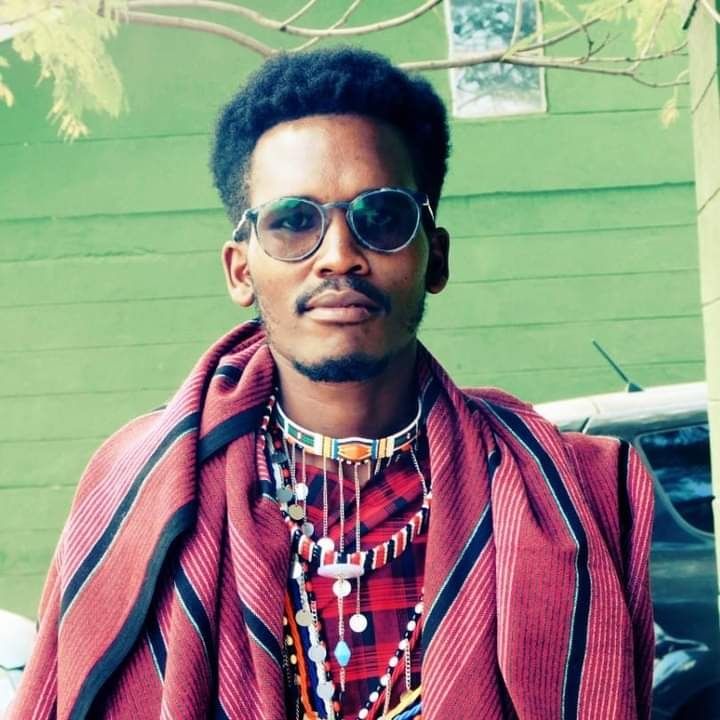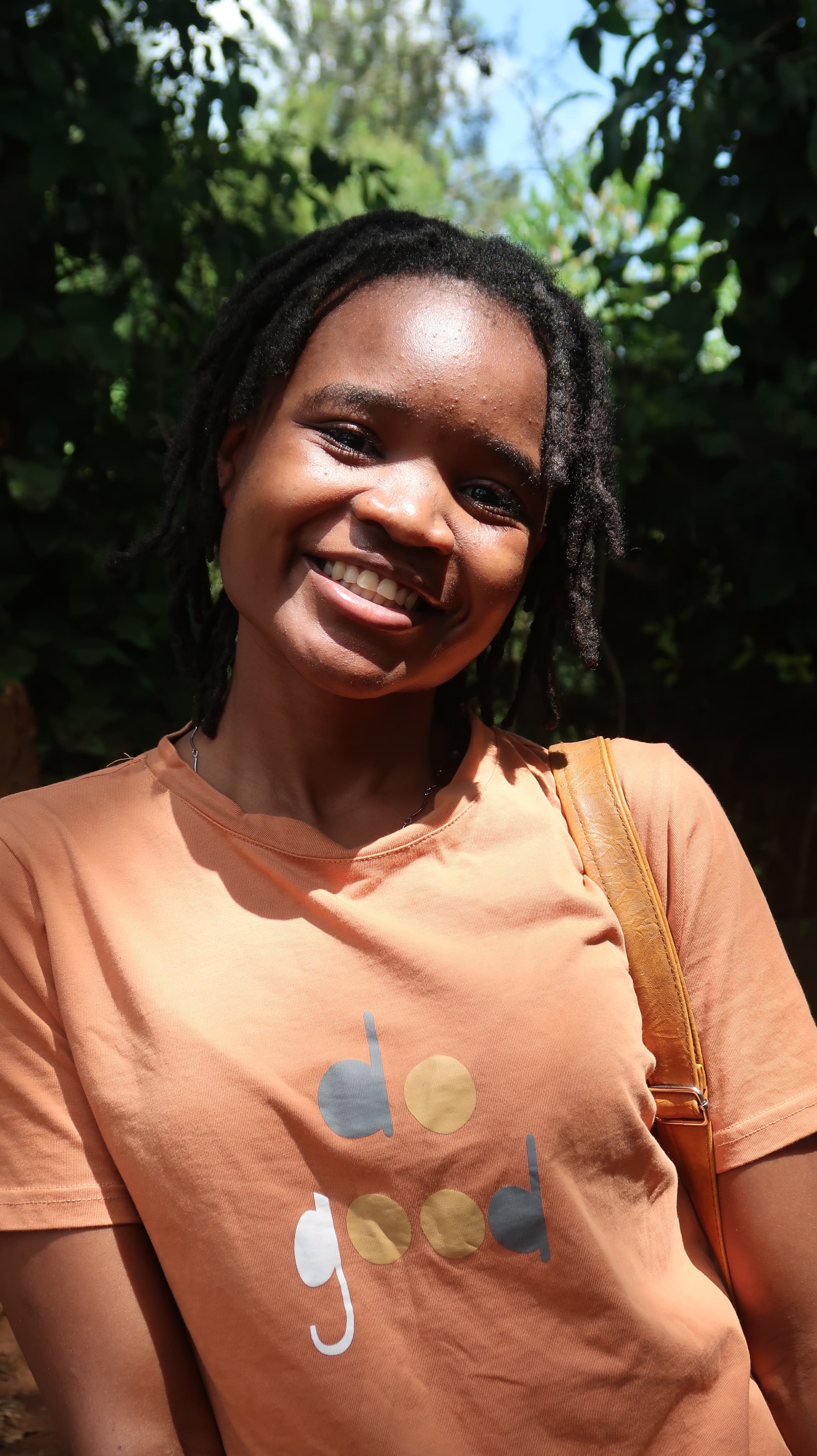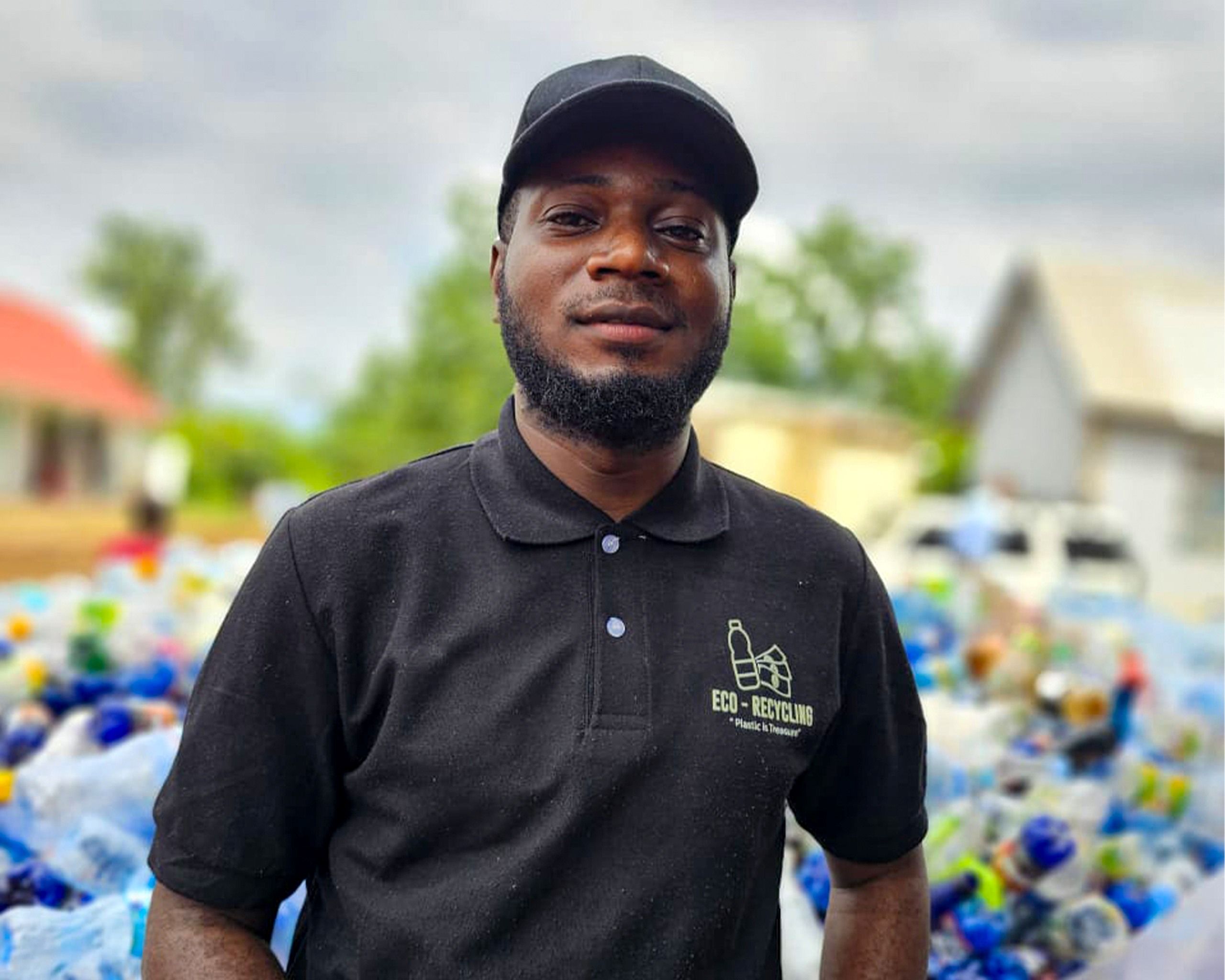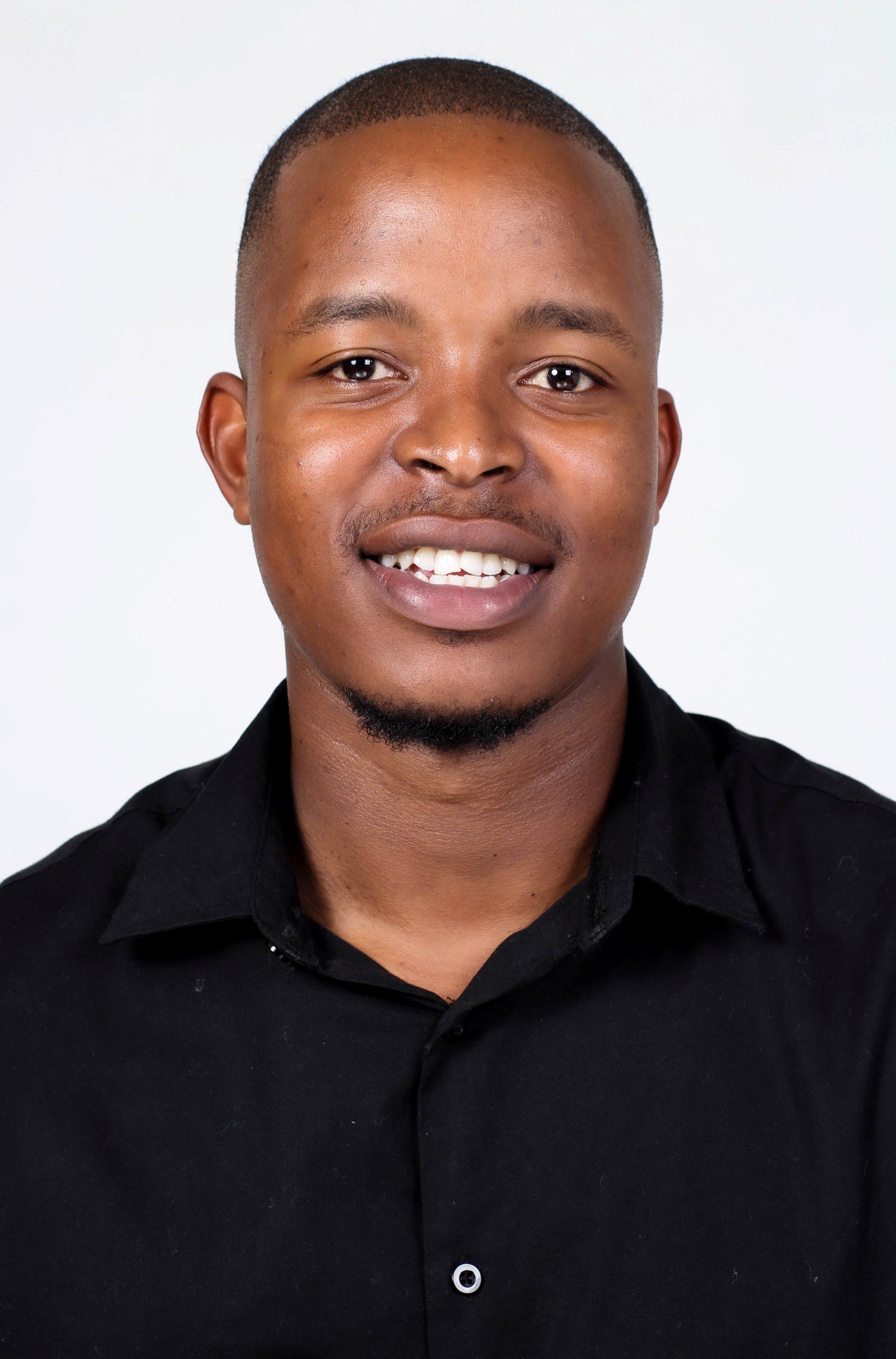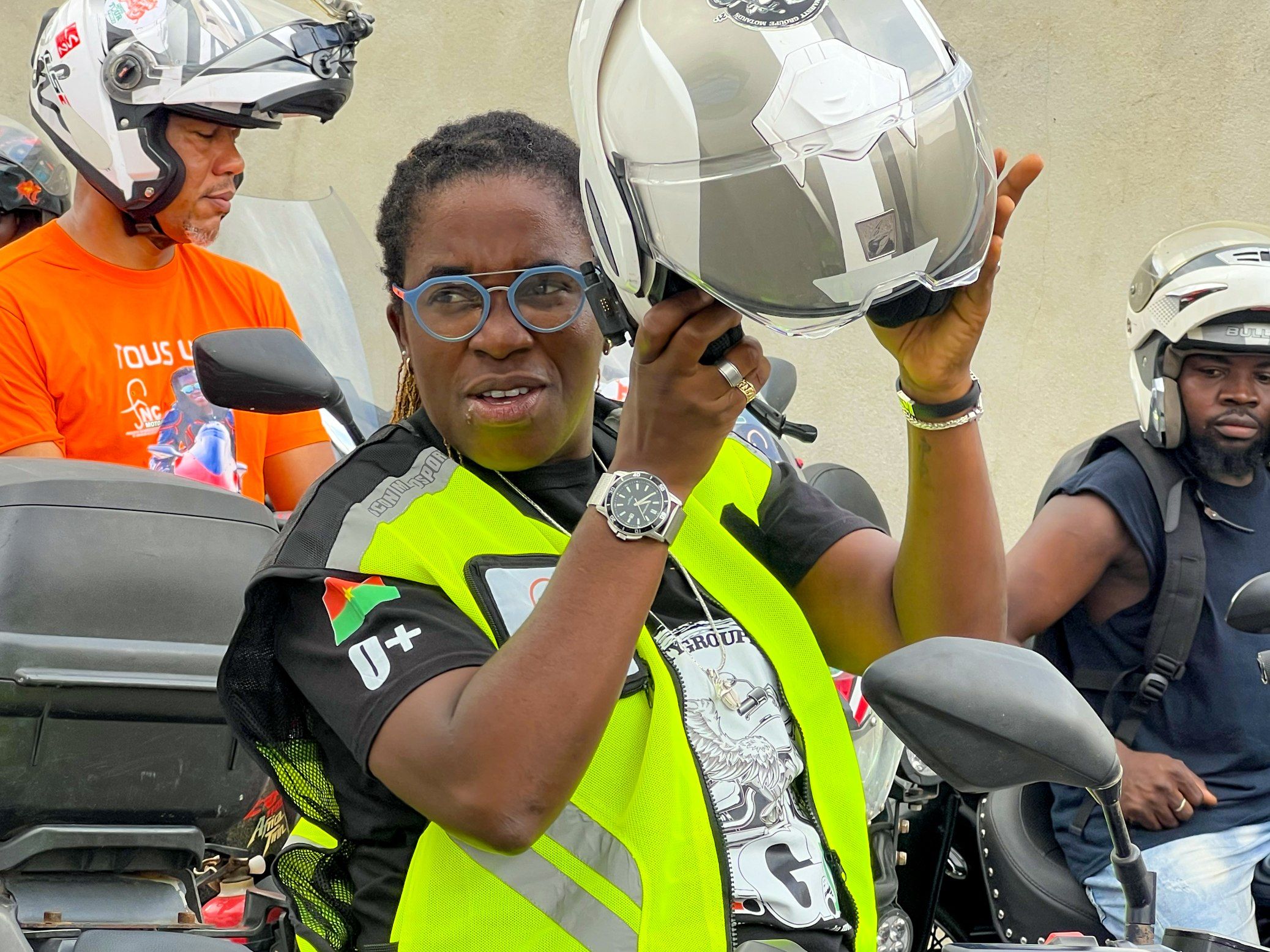Poets are fascinating people. And great poets are like a rare diamond. The way they’re shaped speaks layers in the poetry they write. By reading their words, you find yourself living intimately in the experiences they choose to share.

A few weeks ago, I had a conversation with such a poet—Maison Ole Nkurrunah. Born and raised in Majengo, Narok, Ole Nkurrunah has made a mark as one of the most defining poets in the Kenyan literary scene. He has published two poetry books—I Am Writing an Elegy by the River Siyiapei and Other Poems and Ghettorati: Tales From Majengo—the latter, his latest masterpiece.
He is also an artivist who is passionate about the accurate representation of the Maasai culture in literature, art and film. To further this cause, he is part of a Maasai collective known as The Maa Creatives Network, a space that seeks to amplify and reclaim the Maasai story. But before we get to know Maison Ole Nkurrunah as the man he is now, it’s only fair to know the boy he was and how his growth influenced his poetry.
Nkurrunah was born in a small village a few kilometres from Narok town. There was no school around his village, and his father, who was then a civil servant, moved them to town so that they could get a good education.
That is how they found themselves in Majengo, a place that heavily influenced his latest book Ghettorati, Tales From Majengo, a collection of free prose poetry. The title Ghettorati is a combination of two words—ghetto, meaning a slum settlement, and literati meaning someone who loves art, music and poetry.
He also chose to tell these tales from Majengo because he believes every town has their own Majengo, and so, anyone who grew up like him could find pieces of themselves in the poetry, regardless of the town.
“Majengo is really not a “good” place,” he says, “I am saying good in quotes because there are a lot of beautiful things that come from there, but growing up there is tough. It’s hard. There’s a lot of poverty around you and I had to find the beautiful things that come out of there.”
The result of him finding the beautiful things was him expressing them in his poetry. However, Nkurrunah also insists that he did not want to sugarcoat and romanticise this experience, so he tried his best to capture the ugly parts as he expressed the beauty of Majengo from his perspective.
Reading his poem Sigisti from the book, which tells a story of the persona inviting a girl for a date in Majengo, you could tell that he achieved what he initially wanted to. Some of the lines of the poem read:
Here in the strike of midday, they all converged
To spend their half-dollar-a-day wage
While decrying their everyday pain
A pain they built with their own hands
Here and now at their lowest
Was no social caste, No tribe
Just poor hopeful people
Savouring their sigisti in peace
By the River Siyiapei, a poet is born
Poetry drips from his pen, and the experiences he witnessed or was part of are evident in each word. How did he come to be such a good poet? Nkurrunah traces back his first time writing to when he went to a boarding school in Class Five. Back then, he had books that he would scribble things in, but he did not know he was writing poetry.

By the time he was in campus, he was more confident in his identity as a poet. He published his first poetry book I Am Writing an Elegy by the River Siyiapei and Other Poems immediately after graduating from university in 2022. Like his second book, I Am Writing an Elegy by the River Siyiapei is also about culture.
“My first book is a mosaic of different things,” he says, “It’s called I Am Writing an Elegy by the River Siyiapei and Other Poems. River Siyiapei is a small tributary of the Ewaso Ngiro South River which is found in Narok and goes all the way down to Magadi. So, whenever I wasn’t in town where I used to go to school I was in the village with my grandparents. And there’s a river downhill from the farms and that is the River Siyiapei. Most of the things I wrote in that first book, a lot of love poems, I wrote while taking care of the cows along the river.”
In I Am Writing an Elegy by the River Siyiapei and Other Poems, Nkurrunah addresses a lot of issues including land rights, corrosion of culture, and the changes in forms and expressions. One of the poems from the book, Cardiac Strings, reads:
I still wish I could pick you the Maasai love grass
Like I used to do in April while they were in full bloom
Or lay down by the Siyiapei river
Feel your sharp shy gasps of breath cut through the country air
These beautiful memories are my cardiac strings
The motivation I need for my heart to beat.
Nkurrunah the artivist
Being an artivist, Nkurrunah is passionate about the correct representation of the Maasai culture. According to him, there aren’t many Maasai writers or people who are trying to express the Maasai culture as it is. In his poetry, he tries to show the Maasai way of life through his own eyes growing up. He writes of the experiences he witnessed through his father, his grandfather, and his own upbringing.

He is always trying to push for more Maasai writers to write about the culture as he believes their voice will go a long way to bring out the Maasai culture through their own eyes. Even though as a nation, the Maasai are usually the most represented in terms of tourism, Nkurrunah is torn about this representation.
“I love it when people appreciate our culture. I love it. When I see someone else who is not a Maasai doing it, I appreciate it. But I just want people to research because you might do something that is not right and it’s culturally like an insult or something. If I wanted to portray a different culture through my work, I’d have to do research enough to know that you cannot do this, this is wrong.”
“There is this series that is going on called Shanga, and we came out guns blazing because of it. In the series, they did not accurately represent what the culture is about. The show goes against everything that we believe in. And I really don’t have an issue with people acting out the Maasai culture because people have been doing it and it’s totally okay but please do it the right way and not by doing things that go contrary to what we believe in.”
In the show that Nkurunnah talks about, Shanga, the showrunners got almost everything wrong about the Maasai culture. For instance, how they dress the actors up in the show is not how real-life Maasai people dress. According to Nkurrunah, men can’t wear certain things which they wear on the show. There’s also the issue of the red ochre they apply on the main character which is ceremonial and not worn on daily life as is portrayed in the show.
Also, contrary to what the media portrays the Maasai culture to be, the Maasai people do not actually adorn themselves in traditional Maasai clothing every day. They dress like normal people on a daily basis, and the ornaments and garments are only reserved for special cultural occasions.
For Nkurrunah, the lack of accurate representation of the Maasai culture is a sore topic. He believes that if more Maasai artists, writers and poets start telling the Maasai story, perhaps this could change. Some of the Maasai writers he looks up to who have already done this are the late Henry R. Ole Kulet who wrote the critically acclaimed novel Blossoms of the Savannah, the poet and former Narok North MP Hon. Moitalel Ole Kenta, the dynamic and prolific writer David Ole Munke, and his peer, friend and Qazini’s content manager Lesalon Kasaine.
Nkurrunah is also a part of a collective known as The Maa Creatives Network which is based in Narok. The collective is attempting to find writers in the Maasai region who are interested in writing full-length works and publishing them.
Apart from the Maasai writers, Nkurrunah also looks up to several writers including Ken Walibora, John Habwe, Ngugi wa Thiong’o, Chimamanda Ngozi Adichie, Wole Soyinka, NoViolet Bulawayo.
As for his future dreams of where he wants to take his poetry, Nkurrunah speaks of wanting to go deeper into performance poetry which he feels resonates more with the current generation. He is also thinking of going back to school to study a creative course that will back up the creativity flowing in his blood.
Being a theatre fan and avid drama participant when he was in high school, he is also currently exploring playwriting and believes plays can be a way of expressing all the things he would want to express fully. With the help of The Maa Creatives Network, Nkurunnah aims to take the theatre scene in his hometown, Narok, which currently does not have such a space.
All in all, Maison Ole Nkurrunah is a poet and a storyteller, a skill he says he learned from his mother who used to tell him a lot of stories growing up. He believes women are the backbone of the Maasai culture, and through his art, he aims to highlight all aspects of his culture to the world.
To wrap up our conversation, he says:
“Life in its entirety is just poetry. Everything you do, and everything you come across inspires poetry.”
A statement I agree with fully.
***
Purchase Maison Ole Nkurrunah’s books Ghettorati, Tales From Majengo and I Write An Elegy by the River Siyiapei and Other Poems by contacting him via phone at 0715978808 or reaching out to him on Facebook at Maison Ole Nkurrunah.

